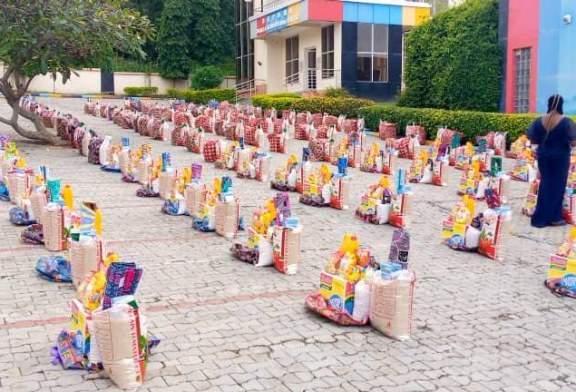Former Nigeria’s ambassador to the Philippines, Dr. Yemi Faronbi, and lawmaker Abdulwaheed Akintayo have proposed the use of a database for distributing palliatives to Nigerians by the Federal Government. This suggestion comes in response to a statement made by the Oluwo of Iwo, Oba Abdulrasheed Akanbi, who advocated for traditional rulers to handle the distribution of palliatives on behalf of the government.
In separate interviews with the News Agency of Nigeria in Ibadan, Dr. Faronbi emphasized the importance of utilizing a database to ensure that palliatives reach those in need efficiently. He stressed the need for a short-term solution, urging the government to focus on empowering individuals to become self-sufficient rather than relying on handouts.
On the other hand, lawmaker Akintayo highlighted the necessity of a constitutional provision before traditional rulers can take on the responsibility of distributing palliatives. While acknowledging the role of traditional rulers in maintaining peace within their domains, he emphasized the importance of proper legislative processes to formalize their involvement in welfare distribution.
The debate surrounding the distribution of palliatives underscores the diverse cultural and geographical landscape of Nigeria. With a multi-ethnic society spanning from the North to the South and East to West, the traditional methods of distribution may not be universally applicable. It raises questions about the practicality and effectiveness of relying solely on traditional rulers for welfare distribution in a country as vast and diverse as Nigeria.
As discussions continue on the most effective approach to providing assistance to vulnerable populations, the need for transparency, accountability, and inclusivity remains paramount. Whether through a centralized database system or a constitutional framework, the goal is to ensure that palliatives reach those who need them most, regardless of their location or background.
In conclusion, the call for a data-driven approach to welfare distribution reflects a broader conversation on governance, accountability, and social welfare in Nigeria. By exploring innovative solutions and engaging in constructive dialogue, stakeholders can work towards a more equitable and efficient system of support for all Nigerians in need.
